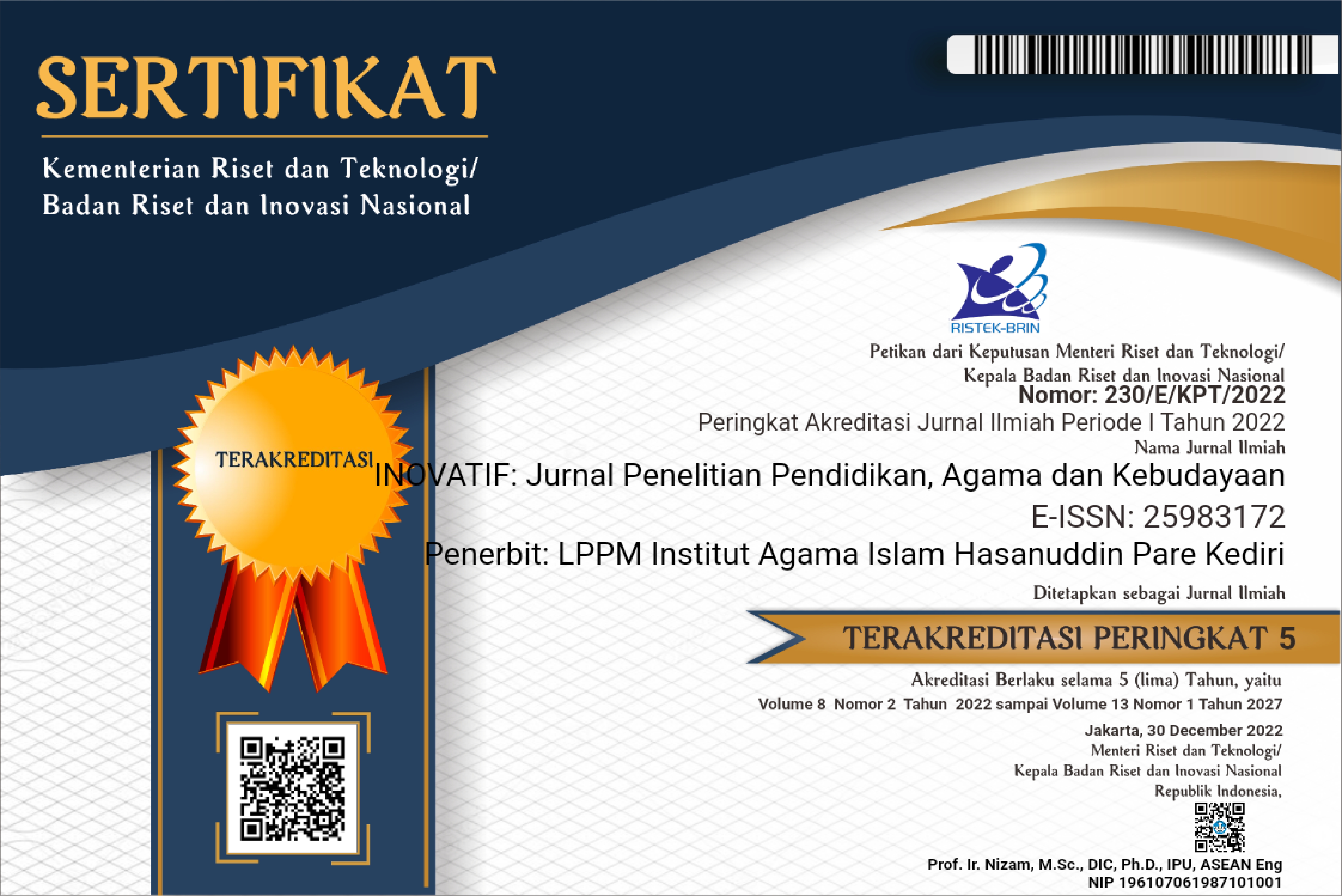Targhib wa Tarhib Perspektif Al-Quran
DOI:
https://doi.org/10.55148/inovatif.v4i1.69Keywords:
Targhib, Tarhib, Gift, Punishment.Abstract
Targhib wa Tarhib is a term in Al-Qur'an which means favors and threats. It aims to stimulate people to always do good. If associated with learning, Targhib wa Tarhib means reward and punishment. These two methods are very effective, given to the students with certain conditions. Prizes are awarded to outstanding students but the prizes are not excessive. Meanwhile, punishment is given to the students aimed to give a deterrent effect in order not to repeat the same mistakes. Punishment is not allowed to be violent but must be educational. Therefore, the Messenger of Allah gave an example by giving a rebuke directly. This article describes the effectiveness of targhib (reward) and tarhib (punishment) methods in learning according to the Qur'an. In this study, the author uses library research that is collecting materials by reading books, field, magazines and others in the form of literature. The research applied descriptive qualitative research method. The interpretation approach of mawdluu'i is the interpretation based on the theme by collecting verses which have a common direction
References
Downloads
Published
Issue
Section
License
Please read Copyright Notice for Inovatif: Journal of Research on Religious Education and Culture









